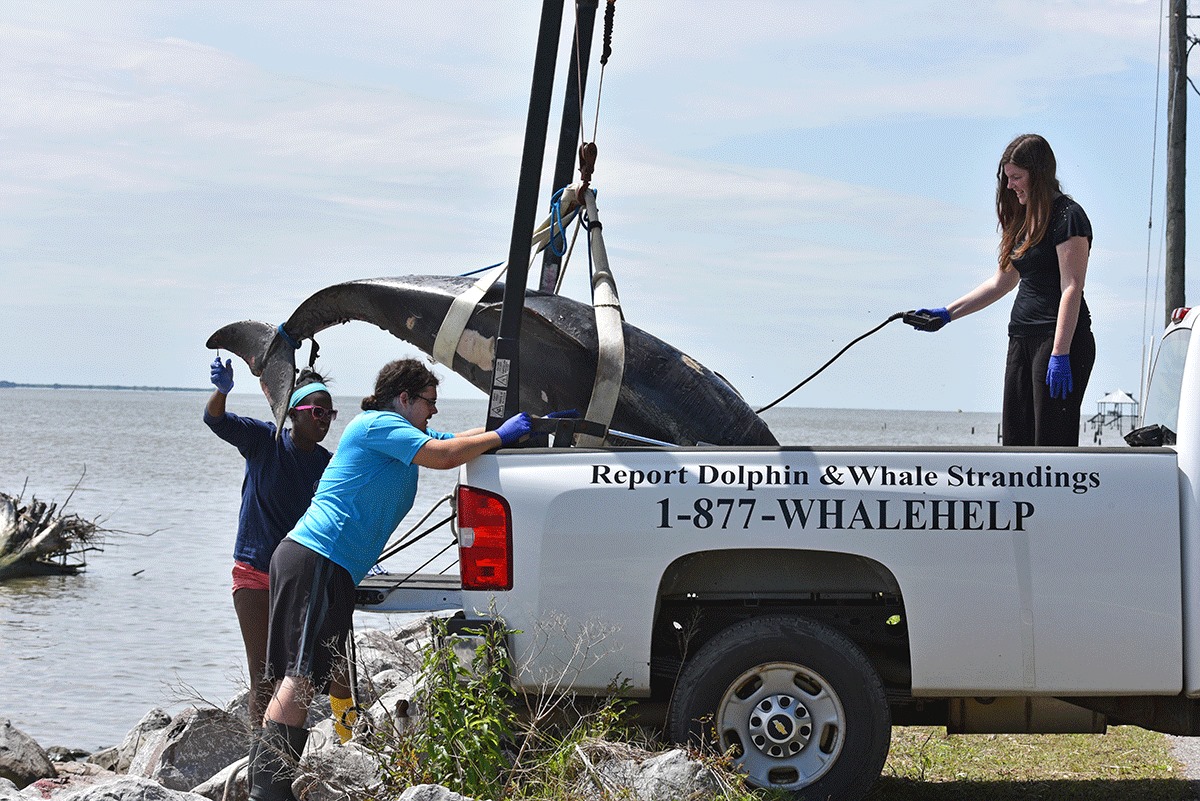
The warmer months are a busy time for the Alabama Marine Mammal Stranding Network. The team encourages the public to call when a distressed or deceased marine mammal is spotted throughout the year.
Veterinarian Dr. Alissa Deming, who joined the ALMMSN team this spring, said they've received nearly two dozen reports for deceased bottlenose dolphins since January.
"By calling the ALMMSN to report deceased dolphins, manatees, or whales on the beach provides the opportunity for us to come out and collect samples to determine the casue of death associated with the stranding which provides information to better understand the the environmental impacts to the population in the area," Dr. Deming said.
In the case of a live stranding, Dr. Deming stresses the public should not try to push the animal back into the water.
"Often times marine mammals will strand themselves on the beach when they are injured or ill," Dr. Deming explained. "The quicker we can provide help to them, the more likely they are to survive their injuries or illness. By immediately calling our helpline, we can dispatch responders to help provide care and transport the animal to a rehabilitation facility."
Melvin the melon headed whale is a good example of a success story when the public immediately reached out to ALMMSN for help.
Melvin stranded on the beach in Fort Morgan in September 2017. ALMMSN responded and transported Melvin to IMMS in Gulfport where veterinarian Dr. Debra Moore and her team rehabilitated the animal over a four month period.
Melvin returned to the wild in December, making him the first successful melon headed whale rehabilitation in the United States. This was due greatly to the rapid response of both teams.
If you see a distressed or deceased marine mammal, call ALMMSN at 1-877-WHALE-HELP. Learn more about the program by clicking here.